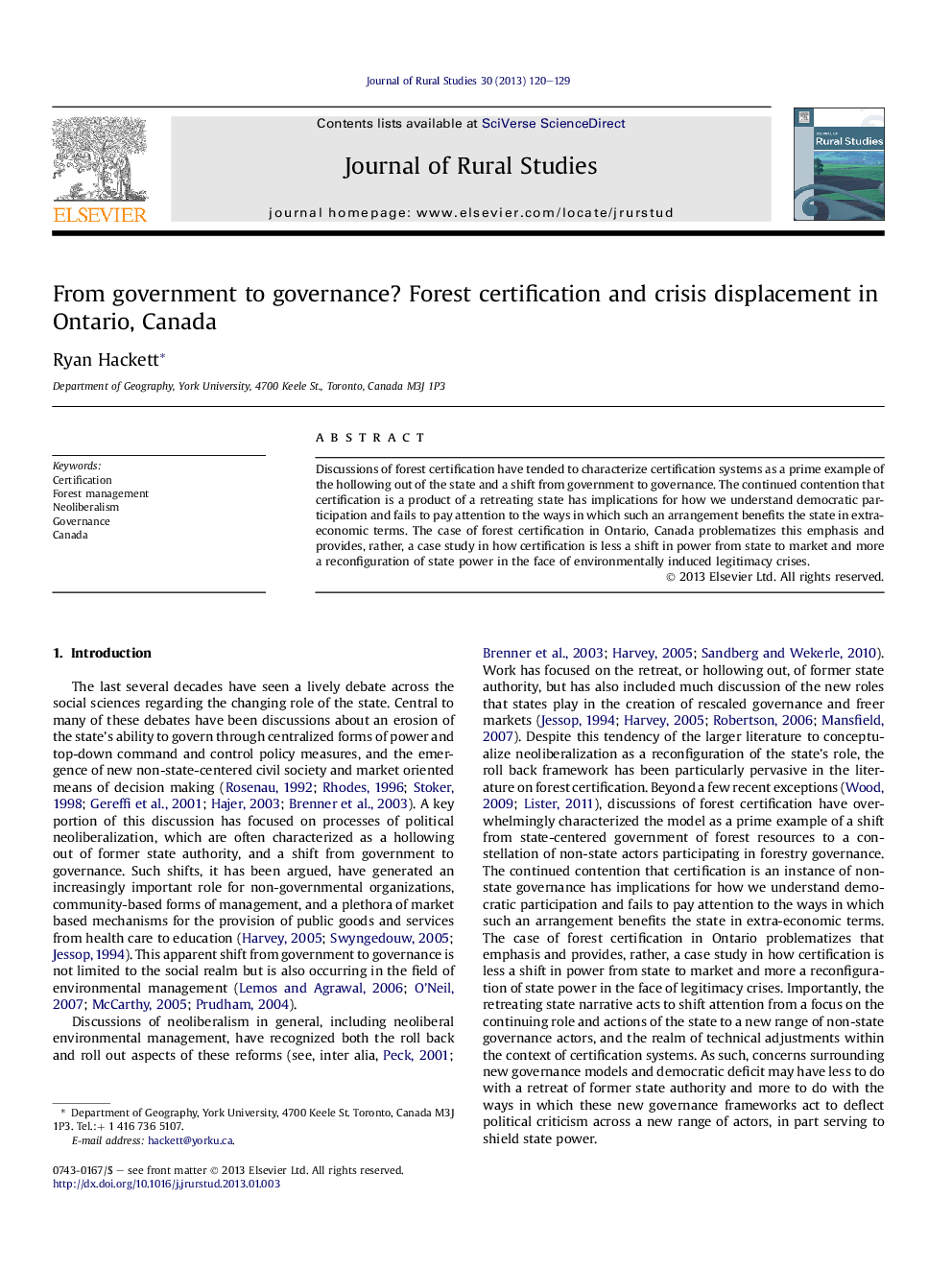| کد مقاله | کد نشریه | سال انتشار | مقاله انگلیسی | نسخه تمام متن |
|---|---|---|---|---|
| 92549 | 159980 | 2013 | 10 صفحه PDF | دانلود رایگان |
Discussions of forest certification have tended to characterize certification systems as a prime example of the hollowing out of the state and a shift from government to governance. The continued contention that certification is a product of a retreating state has implications for how we understand democratic participation and fails to pay attention to the ways in which such an arrangement benefits the state in extra-economic terms. The case of forest certification in Ontario, Canada problematizes this emphasis and provides, rather, a case study in how certification is less a shift in power from state to market and more a reconfiguration of state power in the face of environmentally induced legitimacy crises.
► Certification may not involve a shift in power from state to non-state actors.
► Certification may represent a reconfiguration of state power in times of crisis.
► Democratic deficit may result from the appearance of fractured accountability.
► Displacement of crisis across scales may act to reaffirm state authority/power.
Journal: Journal of Rural Studies - Volume 30, April 2013, Pages 120–129
